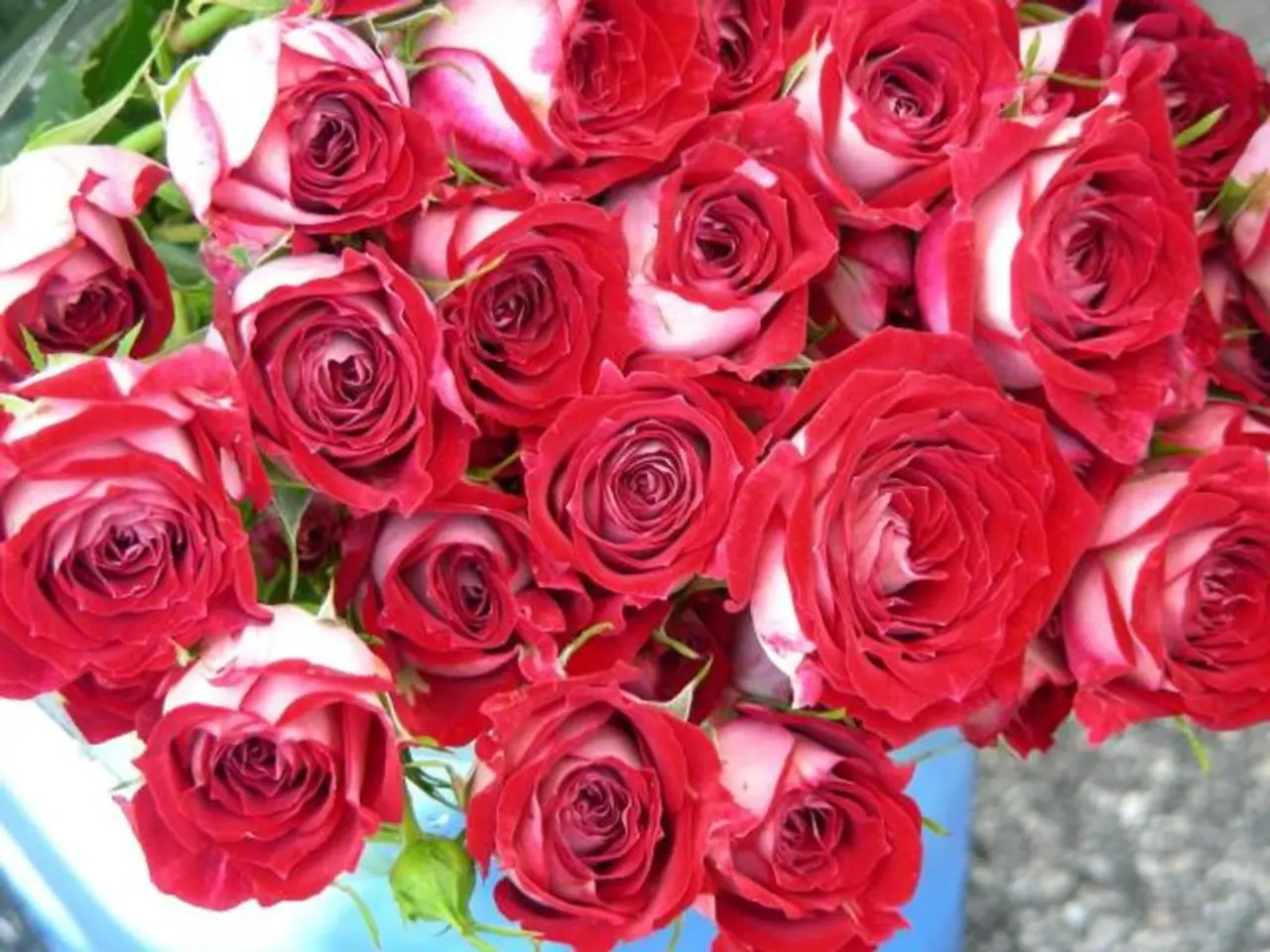Top Picks for Rose's Accompaniment in Your Garden
Roses are undoubtedly a delight to the senses, but they can benefit greatly from the right companions. By carefully selecting plants to grow alongside roses, gardeners can not only improve the aesthetic appeal of their rose beds but also promote the health and vitality of these beautiful blooms.
Companion planting is a time-honoured practice that offers numerous advantages. It helps deter pests, improve soil, and enhance the color and fragrance of rose blooms. By selecting the right plants, gardeners can create a harmonious ecosystem that benefits both the roses and the companion plants.
One such plant that thrives in full sun and provides a calming contrast to vibrant rose blooms is lavender. Known for its soothing scent, lavender repels common rose pests like aphids and helps improve soil drainage. It also provides a living mulch, suppressing weeds and lightly shading rose roots to keep them cool.
Another classic choice as a companion plant for roses is Hardy Geranium. These disease-resistant perennials act as excellent ground cover in rose beds, filling gaps and complementing roses. Hardy Geraniums like 'Rozanne' provide long-lasting flowering that extends from early summer to autumn, their mounding habit softening the base of shrub roses and adding cool violet-blue hues that complement rose colors.
Artemisia, a silver-leafed plant, can thrive in poor soil conditions and act as a fantastic companion plant due to its ability to improve soil structure and repel pests. Highly adaptable to poor or sandy soils, Artemisia is an excellent choice for filling gaps in areas where roses may struggle.
Dianthus, with its pale pink or vibrant hues, adds charm to rose gardens and helps deter pests. Thriving in the same well-drained soil that roses love, Dianthus is an excellent choice for creating a harmonious garden.
Clematis, especially the viticella group, act as elegant climbing companions that flower from mid-summer through autumn, filling visual gaps between rose blooms and adding graceful texture and color.
Campanula and verbena add delicate bell-shaped or airy flowers that contrast rose forms, bring pollinators, and add movement and lightness to the garden structure.
Scented herbs like rue, feverfew, parsley, thyme, and garlic help repel pests such as aphids, mites, Japanese beetles, and other insects harmful to roses. Garlic planted around rose bushes offers natural defense and fragrance.
Hardy Geraniums help reduce moisture retention on rose foliage, limiting the spread of fungal diseases. Regular pruning is essential for keeping culinary herbs healthy and encouraging new growth, as well as removing dead or yellowing leaves to maintain plant health and avoid overcrowding near roses.
To prepare for winter, cut back the foliage of Hardy Geraniums after the first frost and mulch around the base of the plant for insulation. Catmint (Nepeta) is a versatile and hardy companion plant with soft, gray-green foliage that pairs well with roses and attracts beneficial insects like bees and butterflies.
Agastache brings life to gardens well into late summer, attracts beneficial insects, and enhances air circulation around roses.
The floral beauty of roses can be enhanced by the right companion plants, creating a garden that is not only pleasing to the eye but also a thriving ecosystem that supports the health and vitality of these beloved blooms.
[1] Garden Myths: Companion Planting for Roses
[2] The Best Companion Plants for Roses
[3] Companion Planting for Roses: What to Plant Near Roses
[1] Choosing the right companion plants can significantly improve the appearance, health, and vitality of roses. For instance, lavender, hardy geraniums, artemisia, and scented herbs like rue and thyme are excellent companions due to their pest-repelling properties. [2] Dianthus, clematis, campanula, verbena, catmint, and agastache also make great choices for their contrasting flowers and benefits in deterring pests or attracting pollinators. [3] Gardening strategies such as companion planting for roses not only create a visually stunning garden but also serve to build a thriving ecosystem, enhancing the overall charm and liveliness of your home-and-garden space while also providing a variety of food-and-drink options and contributing to your lifestyle and fashion-and-beauty preferences.




